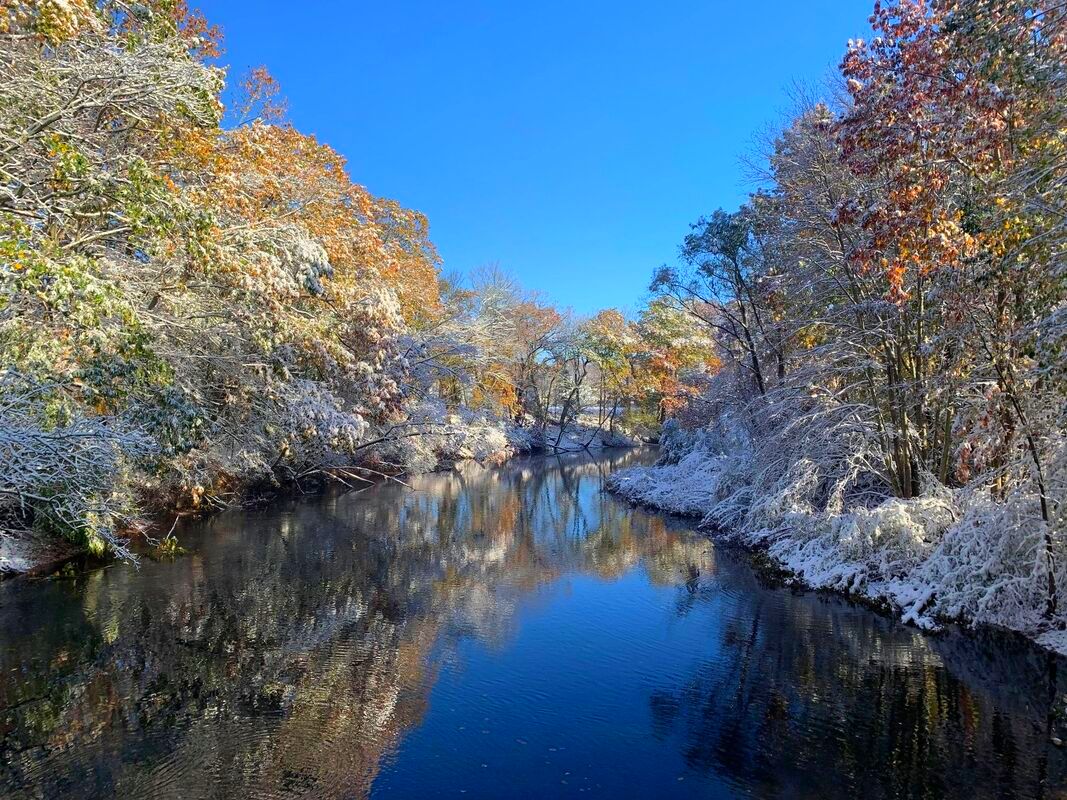 OK so...I have always been a religious person. Spirituality, theology, ethics, and philosophy were interests of mine since before I could remember. Honestly I think that as kids we are all intrigued by the question or our existence and purpose. Over time--and as we develop more accessible passions--those questions retreat to the backs of our minds and wake us up in the middle of the night occasionally. Am I living a just life? What is love? How do I act out of love? What will I do with this time before I die? These are hard questions to think about when we are trying to tag all the mundane bases of modern life. After all, asking these questions doesn't get us any more cash. If we take them seriously we sometimes get less! They also don't get the grocery list done or the house cleaned or the report filed. This means that most of us have little time to truly consider these questions and so being "spiritual" becomes associated with a vague warm feeling we experience on Christmas Eve or on top of a mountain. In those moments we are forced--in the face of awesome beauty--to at least acknowledge our connection to something greater. Then, holiday or vacation over, we return to the grind of the "real" world. Look, I love to hike. I love Christmas Eve! However, there is so much more to these questions and how we answer them. To think of our faith as something that exists in a discrete box--literal box in the case of a church building and metaphorical box in other cases--in our lives is to miss the point of the religious life. To live a life of faith is to consider these questions all the time. Then, through these questions, we touch the Transcendent. We experience the Divine and let it influence our next steps. Now clergy--like all people--go through rough spots in their faith and discipline. Our beliefs change and grow. We reject some ideas in favor of others and then sometimes return to the original belief. We also go on autopilot sometimes. The fact is, most of the work of a clergy person isn't terribly religious on the face of it. There are a lot of meetings and lots of planning for things. There are parties, classes, discussions and whatnot. Setting these events up isn't terribly theological. I have been through quite a few periods where I start to lose track of my faith and become basically like any other non-profit administrator. Then--usually--something will happen that reminds me that I am, in fact, a pastor. In those moments I recall that even the boring, mundane work of my day requires me to act out of big questions and their answers. I bring this up because when the pandemic started--along with some personal physical problems noted elsewhere in my blog--I was pretty sure that I would go into "survival mode" and that the journey of faith would take a back seat to everything that had to be done. There have been times where this was true. It is particularly difficult to stay faithful when there are thorny problems in need of resolution and a number of voices and differing opinions "speaking" at the same time. Occasionally I have struggled a bit while trying to seek consensus that hasn't really been there and trying to be rational for too long. However, in the end, I have found myself letting go and falling back into the answers those questions force upon me. I am learning to fall back on faith. It is weird to think of this as being something less-than-obvious in a congregation, but we all live in the practical "real" world. My faith community is filled with problem solvers who enjoy marshaling facts and applying them to sticky situations. Listening to hearts is harder. We are not rewarded for this behavior in our non-church lives. Our basic approach is to fight to get our way. We are surprised and frustrated when we don't. Right now though...things have changed. These days the path to survival and growth lies in thinking about others. It lies, in fact, in spirituality, ethics, theology, and philosophy. It is embedded in what we do in our religious lives. Social distancing--like social justice--is a practice of putting someone else's needs above our own both actually and symbolically. It means asking questions with no easy answer and putting our own egos aside for the sake of the group. This is a time where our faith needs to be strengthened. Which means it must be flexible. It must bend and not break. It means we must be intentional and conscious of all that is around us and move how the spirit directs. Anyway, I have had to make some tough decisions lately. Some of them are no doubt unpopular in certain quarters. Like everyone I know, I don't really have much of a clue what the future will hold for us. Yet I find joy in what I have discovered about my faith in this dark time. I was never sure it would withstand something like this. Instead it has grown. So a short celebration is in order, right? I hope that your faith is holding you up. If it is, congratulations! I congratulate you from my social distance. If it isn't then I am praying for you. All I can say is that I have been there and odds are I will be again. Keep up the good fight and let me know if you need anything. OK, essay over. I need to get back to work. There are more hard decisions today as there are most days. I will be thinking of you all. We will make it. We truly shall.
0 Comments
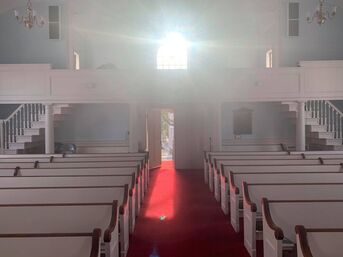 So we had our outdoor communion service yesterday. It was our third attempt at such an event and you know...I think we are getting the hang of it. I made it up to the church early--like I used to--in time to run through the brief words I was planning to say, It was All Saint's Day. The church, of course, was quiet. It always is at that hour. the fact that we still use parts of the sanctuary for storage reinforced the feeling a bit. Then the rest of the "crew" arrived. We set up with relative ease on the steps of the church. There was the communion table we always use, and the bread (for the first time individually wrapped communion wafers). Of course we also had the wine and the "wine". We always use the single-serving "little cups" for communion so--as long as we don't pass the plate and instead have folks step up to the table--they are naturally distanced. Everything was laid out on their respective trays the day before. They were maximally safe. the whole thing made for an odd combination of high and low church. Partly we were doing what we usually do. Partly we were a bit "off". However I would say we were comfortably off. Nothing felt alien. Finally, we decided on a "sound system". We had a microphone and a used practice amp that I bought a few years ago for $25. The goal was to reduce any yelling the officiants had to do. I yell when I am just chatting with someone. I yell even louder if I think people cannot hear me. Then people began to arrive. We waited the start time a bit so that folks having trouble getting settled could do so. Most people stood. We grabbed a chair for one person who has trouble standing. We grabbed a mask for one person who forgot theirs. Then we got rolling. The service may have been a bit casual for All Saints and it was definitely shorter--slightly under 25 minutes. However, it was the reason and the ritual for gathering. Truthfully we hung around for well over an hour in the end. It was good to see folks in 3D. This is the sort of thing I am willing to be a cheerleader for. As a church we are affiliated with the UUA and the UCC but really we are a community church and Congregationalist in its broadest definition. Worship isn't a discrete moment that happens in a specific place or at a specific time. It is what happens when we live our lives together as a community and a congregation. That is part of the tension, sometimes, when we think about how to respond to the pandemic. In another tradition--though I am actually having trouble thinking of any--perhaps there is a reason to elevate the "show" of worship over the communal needs of members. We are not a part of that tradition, though. We are part of one where we assess the needs of the people before putting folks at risk. the body and the spirit are connected after all. Yes, there are reasons why we might want to step--as a group--through those doors and into the sanctuary. There are issues of mental health, which I take very seriously. There are issues of church growth which I am not sure rise to the same level right now. I believe--and I know I have said it before--that God is Love. Sometimes we show our love for each other and for God by being together. Sometimes we show it by being apart. Sometimes we show it by standing on the church steps to take communion on a cold, snowy, November day. Part of our job--not just my job but all of our jobs--is to lead with that. We are opening our hearts during this dark time to the Divine and to our fellow, fragile, human beings. Back when I, my ministry, and Facebook were young, there used to be a big fight every year in the online "clergysphere" about whether it was ever appropriate to cancel worship during a snow storm. Many people--including many religious liberals who served churches that closed in July--insisted that church remain open saying, "God must be worshipped in God's sanctuary". What a tiny God that must be to live in our tiny buildings. I never found that argument to be terribly compelling.
God is not lonely. God doesn't need us to come visit. God is everywhere. Love is everywhere and we must adapt to what nature throws at us, knowing that the Divine presence is, in fact present wherever we may be in our storms and trials, Let us seek that Divine Love. We sure do need it now. |
Adam Tierney-EliotThis is my old weblog of many years. I will probably post here from time to time is there is a subject that does not fit WWG. However WWG is the more active page at this point. Archives
April 2022
Categories
All
|
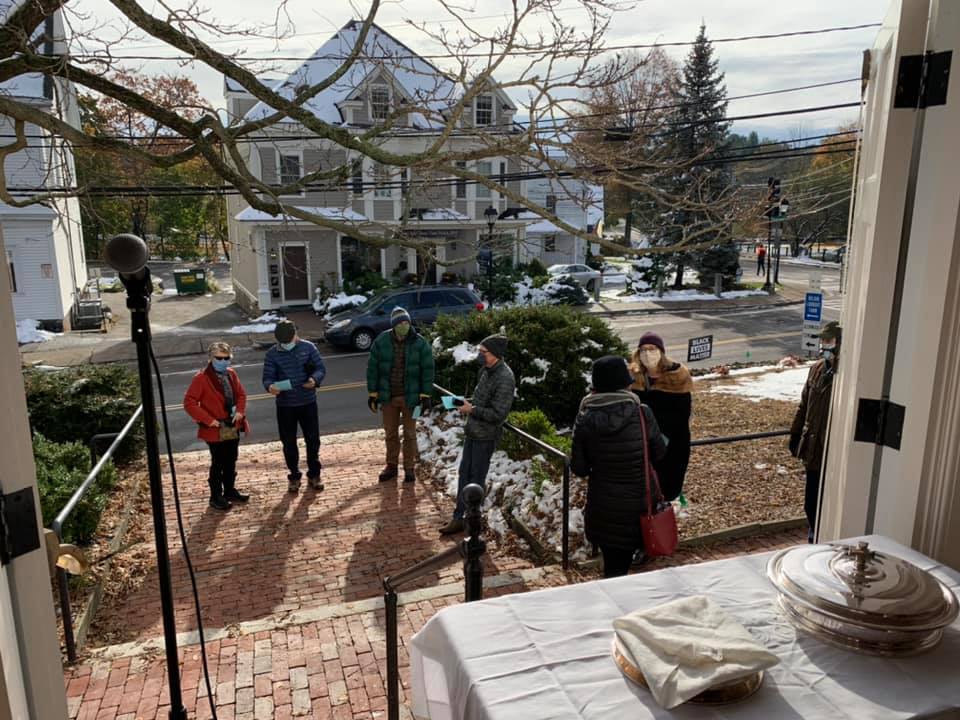
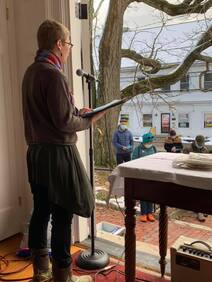
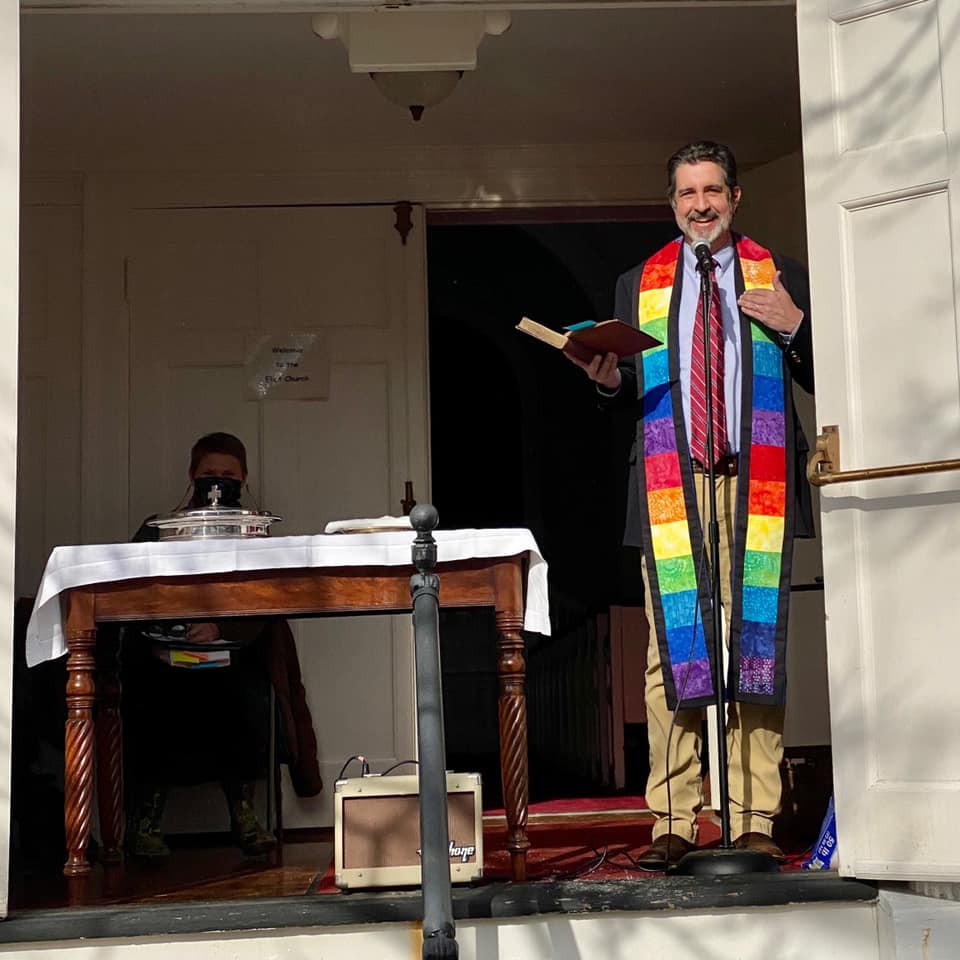
 RSS Feed
RSS Feed